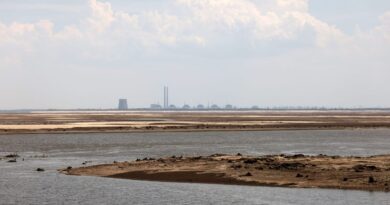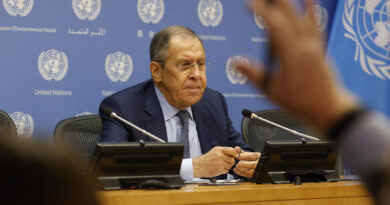Vestager faces blowback over selecting US professor for key competition post
Press play to listen to this article
Voiced by artificial intelligence.
BRUSSELS — A number of European Commission officials complained they were caught by surprise when antitrust chief Margrethe Vestager named a U.S. professor as an adviser to its competition department, a senior Commission official told POLITICO.
Appointing a United States citizen to a powerful European Union job to oversee U.S. Big Tech firms is “super questionable,” the senior official said, adding there was “no discussion internally” on the appointment before it was announced Tuesday. The senior official was granted anonymity to speak freely about internal decision-making.
Fiona Scott Morton’s name merely appeared as new chief economist for the Commission’s Directorate-General for Competition on a list of internal job moves circulated at a meeting of the heads of commissioners’ cabinets before the commissioners met in Strasbourg — their last full meeting before the summer break, according to the senior official.
In counterpoint, another Commission official said top staff are “almost as a rule left out of these nominations, if the person does not come from their own DG.” This official was granted anonymity also in order to freely discuss internal decision-making processes.
Commission spokesperson Arianna Podestá said the Commission opened the vacancy to non-EU candidates to net “the widest possible pool of candidates” and only received “a limited number of applications.”
“Dr. Scott Morton resulted to be the best choice in terms of her qualifications and of her performance in the recruitment process,” Podestá added.
The move could be one of the last for Vestager, the European commissioner for competition, as she waits to hear whether she’ll be formally selected as a candidate to head the European Investment Bank, which could happen in mid-August. She has said she’ll go on unpaid leave if that happens.
The first official said a document explaining Scott Morton’s candidacy only briefly mentioned her previous consulting work for Big Tech firms and discussions with other departments on measures to counter potential conflicts of interest apparently did not take place.
Podestá said the Commission had “thoroughly examined whether she has any personal interest such as to impair her independence or any other conflict of interest.” Measures taken to tackle an actual or potential conflict of interest will see her avoid involvement “in any cases which she worked on or had knowledge of during her previous employment.”
Podestá affirmed Scott Morton will also, for two years, avoid cases involving a company she worked for or had as clients over the past year.
Scott Morton will leave her role as a professor at Yale to start as the Commission’s chief competition economist on September 1. She’s the first woman to take the job, the first person to serve as the top antitrust economist in both U.S. and EU administrations, and the first non-European to take such a senior EU role.
The chief economist plays a key role in evaluating economic aspects of investigations by the Commission’s antitrust, merger and state aid departments. During her three-year term, Scott Morton could be called into decisions on how to apply the Digital Markets Act (DMA) intended to straitjacket Big Tech firms deemed to hold a gatekeeper position for digital services such as search or apps.
Jacopo Barigazzi contributed reporting.




